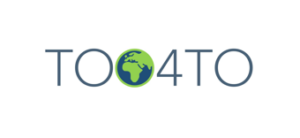The importance of national collaboration in the integration of sustainable development in the design of online education
The digitalisation of education was accelerated by the recent COVID-19 pandemic (OECD, 2021). This increased the discussion on the design of quality online education and, for example, the use of pedagogical models instead of the of digital platforms (Adedoyin & Soykan, 2020). The need for integration of sustainable education into the design of digital education was identified already before the pandemic (see e.g. Wiek et al., 2016; Findler et al., 2019). In Finland, sustainable development should be integrated into all higher education degree programmes (Arene, 2021; Unifi, 2021).

The importance of collaboration in the integration of sustainable design (SD) in the design of digital education is highlighted in a recent study about the design of online degree programmes in higher education (Joshi, 2022). Online degree programmes refer to HE study programmes where education is interactive, guided and includes synchronous elements (Joshi et al., 2020).
The design of online degree programmes for national cross-studies
The design-based research (DBR) study examined the integration of SD into the holistic design of online degree programmes (ODP). The design context was national cross-studies offered on the national digital platform CampusOnline of universities of applied sciences (UAS) created in the ministry-funded eAMK project (eAMK, n.d.). The data subjects were the online degree working group who were involved in the development of ODPs for the national cross-studies as part of the project. The study comprised four phases: the first one prioritized the important features for national collaboration, the second one was a participatory design of ODP elements, and the third one was an interview that focused on the integration of SD in the design of ODPs. In the final phase, the results were compared to the combined sustainability competencies to make connections between ODP design and SD integration.
Results highlight the importance of collaboration
According to the results of Phase 1, the two most important factors for designing national ODPs are external collaboration and management support. In Phase 2, collaboration was added as an element to the feature tree. In Phase 3, most of the answers focused on cooperation and communication competencies, highlighting the importance of collaboration. The interview results revealed e.g., the importance of accessible online education, increased possibilities for SD learning opportunities through national collaboration, and future foresight in designing new ways to implement ODPs.
In Phase 4, the results highlighted the importance of collaboration, which supports earlier findings by Leal Filho et al. (2020), who suggest that partnerships are needed in successful SD initiatives. Strategic action and systemic approach were the second most common category in Phase 4, indicating the national-level strategic guidance of integrating SD into HE degrees and creating more accessible ODP and SD education through a systemic approach. The development of students’ SD competence and their well-being was seen as an important target for collaboration, and the development of curricula showed many opportunities for a systemic thinking approach. Aspects of digital environments or technologies, nor specific pedagogical approaches, related to SD integration were not revealed by the results.
Conclusion
National-level collaboration is important in the integration of SD into online higher education degrees. The key sustainability competency of cooperation and communication are central to the integration of SD in the holistic design of ODPs. Collaboration can enhance accessibility and multidisciplinary approach and support the national SD goals set in for the HE organizations. Also, national collaboration in the design of ODPs can develop students’ SD competencies through professional development. Students’ well-being can be supported by creating access to online communities and developing curricula in national collaboration. Following future foresight signals and developing new initiatives through national collaboration is important. Overall, a holistic approach to SD integration into ODPs seems suitable.
Educators and managers should consider the possibilities that national collaboration can bring in the integration of SD into the design of online education. It is important that online education can be seen as a platform for providing students access to communities and competencies that can further aid the national SD goals in higher education and the wider society.
Written by Marjo Joshi
Sources:
Adedoyin, O. & Soykan, E. (2020). Covid-19 pandemic and online learning: the challenges and opportunities, Interactive Learning Environments, https://doi.org/10.1080/10494820.2020.1813180
The Rectors’ Conference of Finnish Universities of Applied Sciences Arene. (2020). Sustainable, responsible and carbon-neutral universities of applied sciences – Programme for the sustainable development and responsibility of universities of applied sciences. http://www.arene.fi/wp-content/uploads/Raportit/2020/Sustainable%2C%20responsible%20and%20carbon-neutral%20universities%20of%20applied%20sciences.pdf?_t=1606145574
eAMK. (n.d., a) eAMK Basic Facts. https://www.eamk.fi/en/project2/
Findler, F., Schönherr, N., Lozano, R., Reider, D., & Martinuzzi, A. (2019). The impacts of higher education institutions on sustainable development: A review and conceptualization. International Journal of Sustainability in Higher Education, 20(1), 23–38. https://doi.org/10.1108/IJSHE-07-2017-0114
Joshi, M. (2022). Sustainable development in the design of online degree programmes for national cross-studies. Ammattikasvatuksen Aikakauskirja, 23(4), 12–33. https://doi.org/10.54329/akakk.113318
Joshi, M., Könni, P., Mäenpää, K., Mäkinen, L., Pilli-Sihvola, M., Rautiainen, T., Timonen, P., & Valkki, O. (2020). Verkkotutkinnot. Turku University of Applied Sciences Reports 269. Turun ammattikorkeakoulu. http://julkaisut.turkuamk.fi/isbn9789522167682.pdf
Leal Filho, W., Eustachio, J. H. P. P., Caldana, A. C. F., Will, M., Lange Salvia, A., Rampasso, I. S., Anholon, R., & Kovaleva, M. (2020). Sustainability leadership in higher education institutions: An overview of challenges. Sustainability, 12(9), 3761. http://dx.doi.org/10.3390/su12093761
OECD (2021), The state of higher education: One year in to the COVID-19 pandemic, OECD Publishing, Paris, https://doi.org/10.1787/83c41957-en
Universities Finland UNIFI. (2020). Theses on sustainable development and responsibility. https://www.unifi.fi/wp-content/uploads/2021/02/Unifi-Theses-on-sustainable-development-and-responsibility.pdf
Wiek, A., Bernstein, M., Foley, R., Cohen, M., Forrest, N., Kuzdas, C., Kay, B., & Withycombe Keeler, L. (2016). Operationalising competencies in higher education for sustainable development. In M. Barth, G. Michelsen, M. Rieckmann, & I. Thomas (Eds.), Handbook of higher education for sustainable development (pp. 241–260). Routledge.


